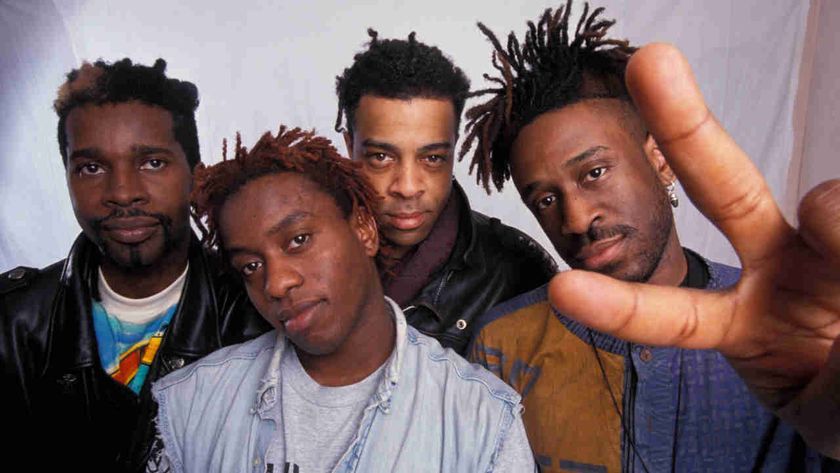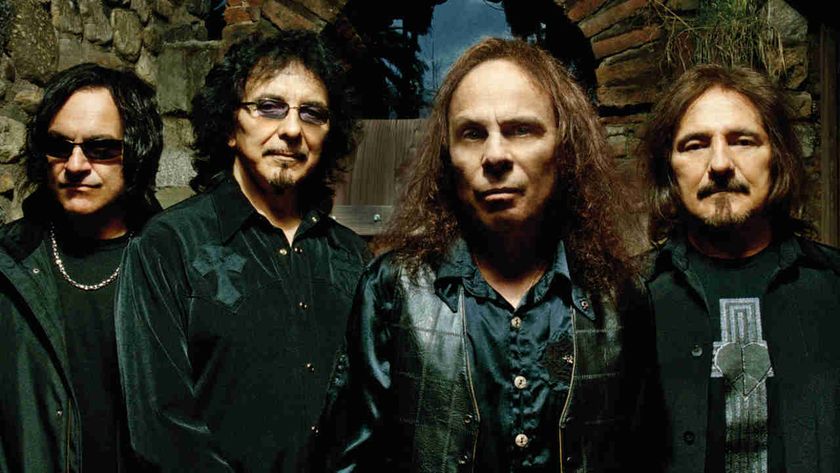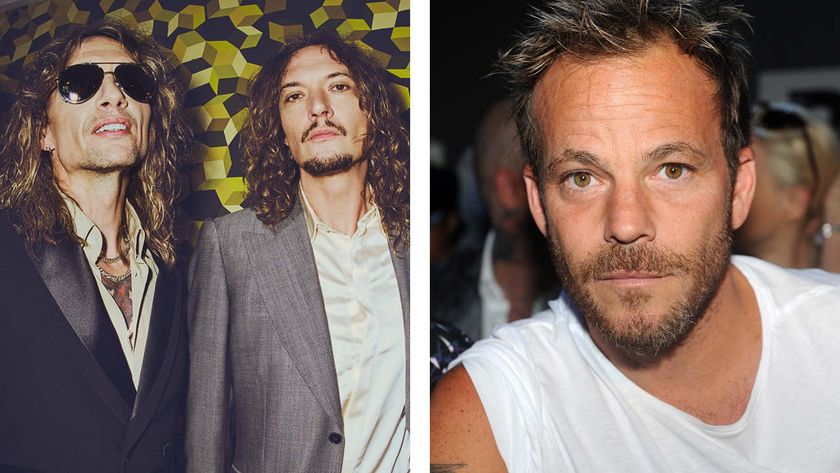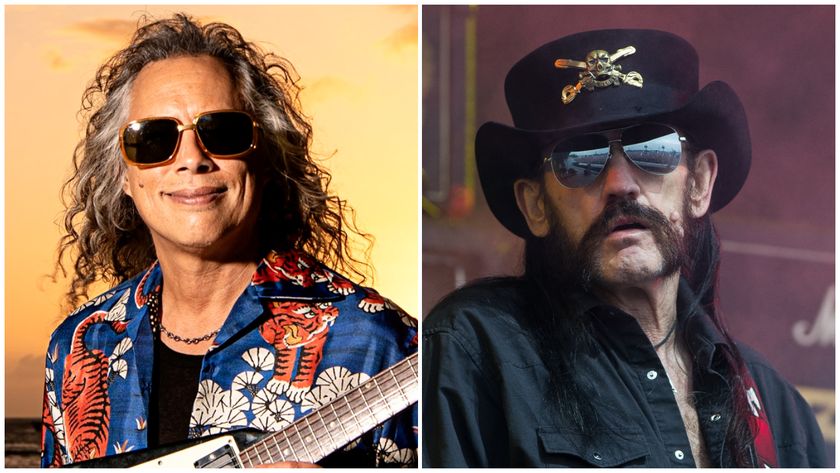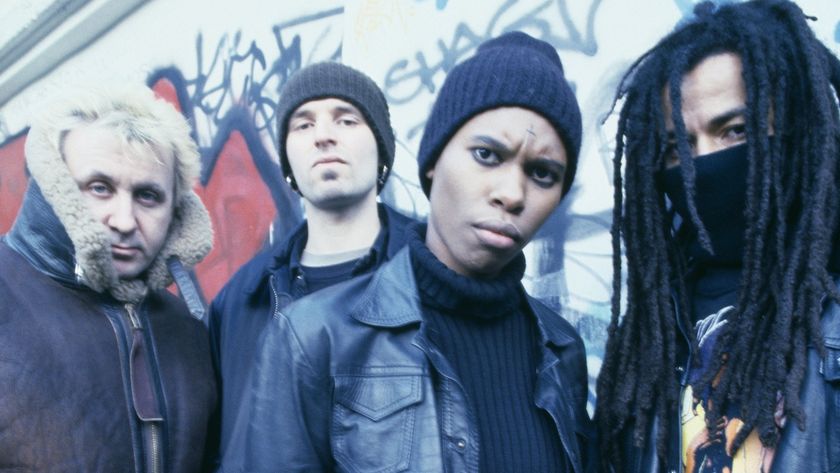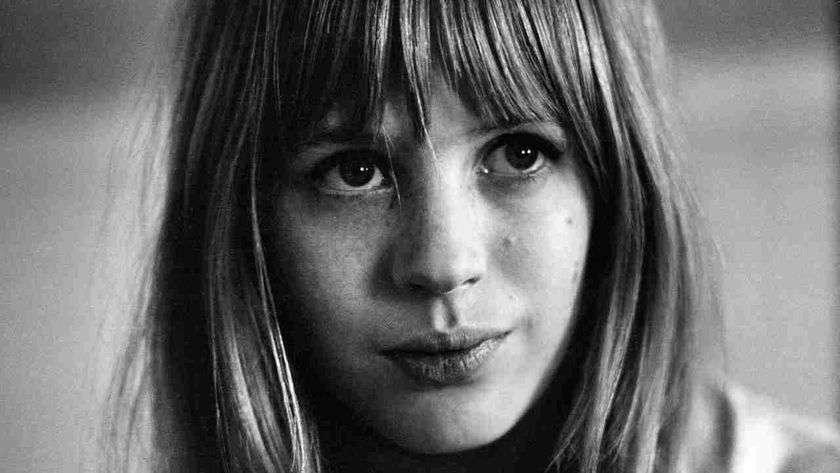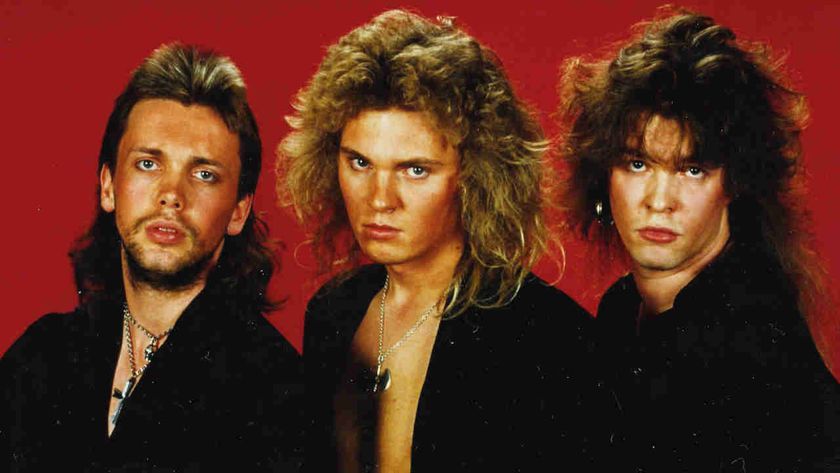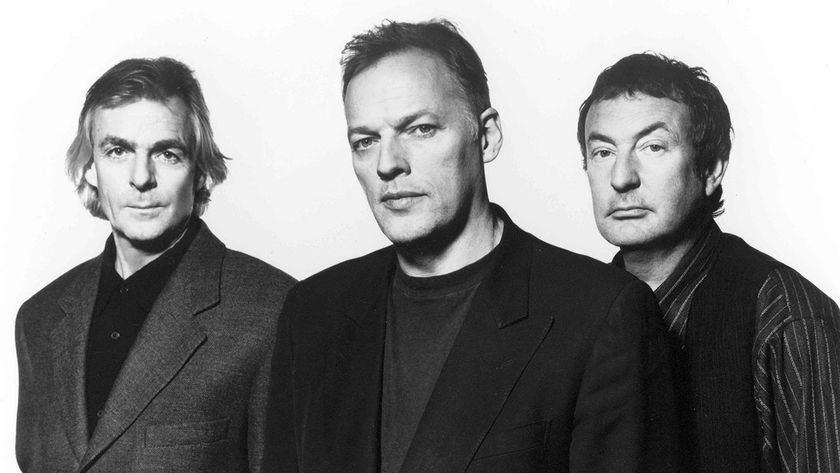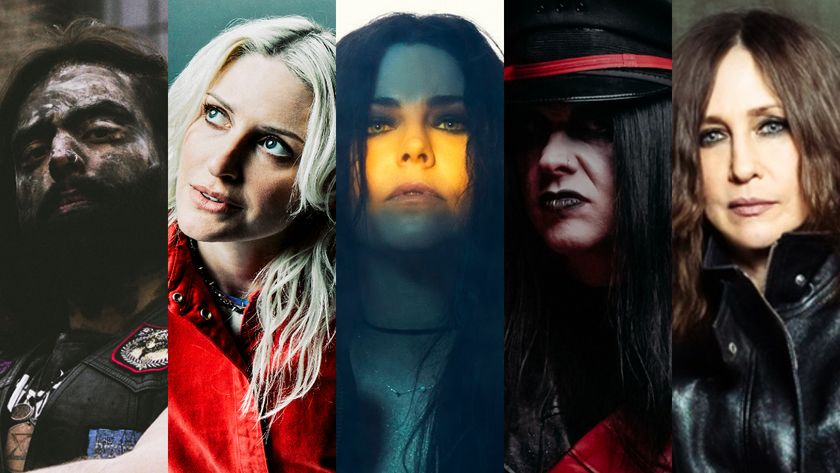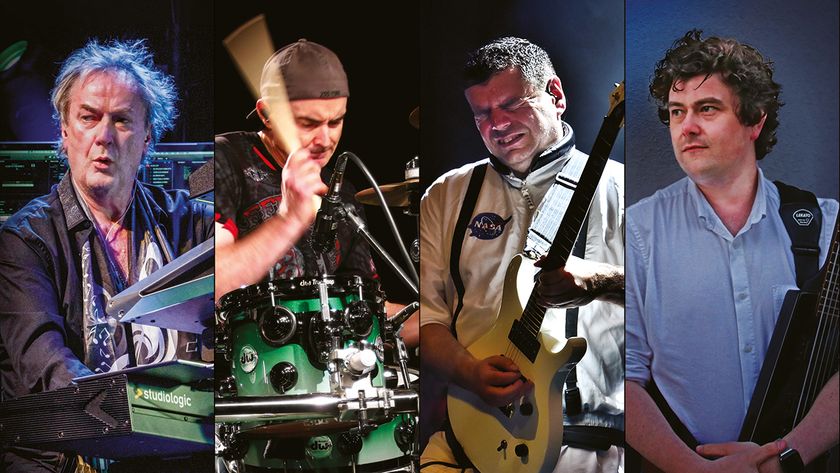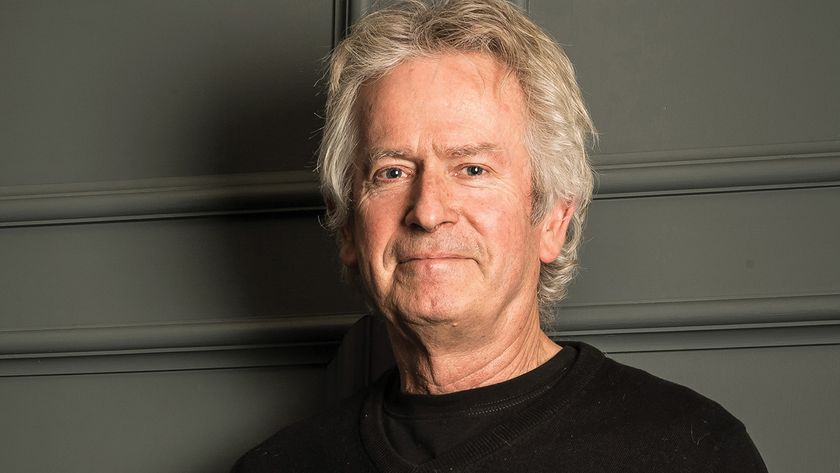90. Manic Street Preachers – Generation Terrorists
You can trust Louder Our experienced team has worked for some of the biggest brands in music. From testing headphones to reviewing albums, our experts aim to create reviews you can trust. Find out more about how we review.
Blasting outta Blackwood rather than Hollywood, the Manics arrived kicking and screaming into our consciousness with a heady combo of grit and glamour. James Dean Bradfield’s coruscating guitar and way with a big tune might have echoed their LA contemporaries, but Richey Edwards’ intelligent, often political lyricism was a world away from the vacuousness of their transatlantic brethren.
"We’d done Motown Junk and wanted to step up a level," says drummer Sean Moore. We got some proper amps and equipment in, and then we got it mixed down. And it felt like we’d missed the mark a little bit. We didn’t quite transfer that live energy we had. This was when we’d been punk and were trying to go rock."
89. Television – Marquee Moon
Television’s Marquee Moon owes as much to Miles Davis and Frank Zappa as it does to any thing as feral as the Pistols. The album is without doubt the major touchstone for all the ‘The’ bands and art rockers of the past few decades: it’s almost impossible to listen to The Strokes without hearing Television’s Richard Lloyd’s guitar sound, or Franz Ferdinand without thinking of Tom Verlaine’s vocals.
Full of jazz influences and virtuoso solos, Marquee Moon is hardly punk. However, it is still easy to see why the album is held aloft as one of new wave’s finest musical accomplishments, with more collective musical ability than any of their peers – with the possible exception of Talking Heads.
“I consider this to be one of the greatest rock guitar records ever,” legendary producer Butch Vig told Classic Rock in 2015. “It’s as if you stuck your finger in a wall socket and you got a jolt from this jarring, fractured, punky guitar playing. It’s just so unusual and interesting sounding – it kind of takes you by surprise at first.
“I love the production on this record. Andy Johns recorded the album, but he made it sound as if the band is right there in your living room. It’s dry and in your face, with a tense, relentless energy that doesn’t let up for a second. And, of course, every track is fantastic.
“When I hear this record, I think, ‘This must be what electricity sounds like.’ The way Tom Verlaine and Richard Lloyd played guitars together is so fascinating to me. A very influential band.”
88. Ted Nugent – Ted Nugent
“If it’s too loud, you’re too old!” declared the Nuge, as he destroyed eardrums across the globe on this, his solo debut. And it more than lived up to expectations. After carving out a niche with The Amboy Dukes, Nugent threw away all thoughts of subtlety and cranked it up louder than everything else.
This is an album dripping with classic moments, from Stranglehold to Stormtroopin’ and Motor City Madhouse. No prisoners were taken, as Nugent set out to prove he was the craziest mutha ever to wield a Gibson Byrdland guitar in anger – and he was, too.
"It is so spontaneous and uninhibited," Nugent told Guitar World in 2009, referring to the classic Strangehold. "The only thing we went back and overdubbed was Derek St. Holmes’ vocals and my two tracks of harmonised feedback, which come in and out of the entire song. All the engineers and everyone kept saying, ‘You can’t do that, Ted.’ And I said, ‘Shut the fuck up!’ Because I had the vision; I saw what the song could be, and I realised it."
87. Nirvana - Bleach
Before the naked baby swam into view, there was Bleach: a rough-and-ready opening gambit recorded on eight-track in three days for $600 that submerged Kurt Cobain’s melodic flair beneath sparse noise and lyrics whose meaning he apparently “didn’t give a flying fuck about”. It’s still a visceral thrill, even if the only hint of impending world domination is About A Girl.
“Their debut album Bleach was the first record of theirs I’d heard and I remember thinking it all sounded so unbelievably violent," says Frank Carter. "It’s not really, though. They’re all sort of pop songs, in a way. That was the way Kurt Cobain wrote songs, they all had this real pop sensibility to them. His songwriting was incredibly special, but, because of the way the guitars and the drums were, it’s a hard listen. It’s a fucking tough pill to swallow, but it’s all there.
86. Poison – Look What The Cat Dragged In
LA arrivistes and cocksure self-starters with a Trash aesthetic that made Aerosmith look like men who’d found their stage gear in a dumpster, Poison were a band in a hurry to have their say – a say that would quickly come to define those early, heady months of hair heaven.
And as ludicrous as Poison were – that was sort of the point, after all – here was the band that already occupied the beckoning future. Look What The Cat Dragged In, self-imagined, self-penned, self-regarding and sounding every inch as though it was recorded for around $20,000, which it was, became a lodestone. Its now-classic cover was hilarious, ridiculous and ever so slightly arousing, while its songs – I Want Action, Talk Dirty To Me –were evidence of gloriously one-track minds, more disposable than a used diaper and once heard, impossible to dislodge.
85. Girl - Sheer Greed
Remembered chiefly for featuring singer Phil Lewis who went on to join L.A. Guns, and guitarist Phil Collen who made the very wise decision to accept an invitation to join Def Leppard, Girl had plenty of creative potential but were misunderstood by their record label, Jet, and unappreciated by a rock scene that at the time was in the denim-and-leather grip of the New Wave Of British Heavy Metal.
Deliberately cultivating an androgynous glam aesthetic absolutely guaranteed to bring them a sound bottling by a Reading Festival crowd, their 1980 debut Sheer Greed was a peculiar clash of Aerosmith, Japan, Starz and New York Dolls. Cornerstone anthem Hollywood Tease kicks off a record displaying lashings of imagination and bravado, the sleazy The Things You Say, the cocky My Number and the arty pop of Strawberries all part of a bold statement of intent. It didn’t come to much, but it doesn’t make this debut any less thrilling.
84. The Allman Brothers Band – The Allman Brothers Band
Where do blues and country music meet? Why, with The Allman Brothers Band, a group whose trajectory took in fame and tragedy long before they achieved classic rock status. Fresh, raw and bursting with energy, The Allman Brothers Band was released in 1969 and showcases a band with everything to prove. That said, the sublime guitar solos from Duane Allman and Dickey Betts – as well as the organ textures laid down by Gregg Allman – revolve around subtlety rather than youthful showing off: there’s maturity here.
The seven-minute Dreams is the core of the album, although you have to admire the whippersnapper cojones of Black Hearted Woman and Whipping Post. Duane Allman’s slide guitar work, always performed with a glass Coricidin pill bottle, and often in open E tuning, was the result of countless hours of hard work. His brief life – he didn’t even make the 27 club – was crammed full of iconic music performances, and shortly before his death he summed up his own legacy. “Develop your talent, man, and leave the world something,” said Allman. “Records are really gifts from people. To think that an artist would love you enough to share his music with anyone is a beautiful thing.”
83. Mother Love Bone - Apple
When seminal Seattle band Green River split into two factions, one half morphed into Mudhoney, while guitarist Stone Gossard and bassist Jeff Ament teamed up with vocalist Andrew Wood to form Mother Love Bone. Apple is solid proof that grunge had its glammier side. From the snarly This Is Shangri-La to the wind-down simplicity of the piano-led Crown Of Thorns, the music has so much more impact knowing that this would be the only album Mother Love Bone would ever make.
One of the great grunge albums. Ranging from spot of glam (This Is Shangri-La) to the gentle piano-led Man Of Golden Words, the band married tunes and ragged riffs while frontman Andrew Wood did his best Freddie Mercury over the top. Who knows what the Seattle band might have achieved had the much-loved Wood not died of a heroin overdose before Apple was even released.
82. U2 – Boy
Boy is the album that drew up what became the U2 formula: Bono makes his first heroic call to arms; The Edge plays crusading guitar passages; Adam Clayton and Larry Mullin supply the spiritual heartbeat; and Steve Lillywhite delivers it all with a monolithic production job. What more is there to say?
Before Bono’s messiah complex tightened its grip, U2 were simply a damn good rock band, and Boy is full of their least overplayed classics, from the spiralling Out Of Control to the punky I Will Follow. Already, they’re writing for stadiums.
81. Pretenders - Pretenders
Think Pretenders, think Chrissie Hynde. But the band had a truly magical aura when late guitarist James Honeyman-Scott was part of the fold. This is a delectable debut, full of perfect (but undeniably spiky) pop songs. It only takes a mention of the songs’ names to have them humming around your head: Precious, Stop Your Sobbing, Kid, Brass In Pocket, Lovers Of Today… consummate stuff.
“I never thought it was that great,” Chrissie Hynde says today of Brass In Pocket. “Was it pop? Motown? Rock? It didn’t seem to know what it was. I used to cringe when I heard my voice on those early Pretenders recordings, and then that fucker went to number one! I remember walking around Oxford Circus hearing it blasting out of people’s radios. I was mortified.”

